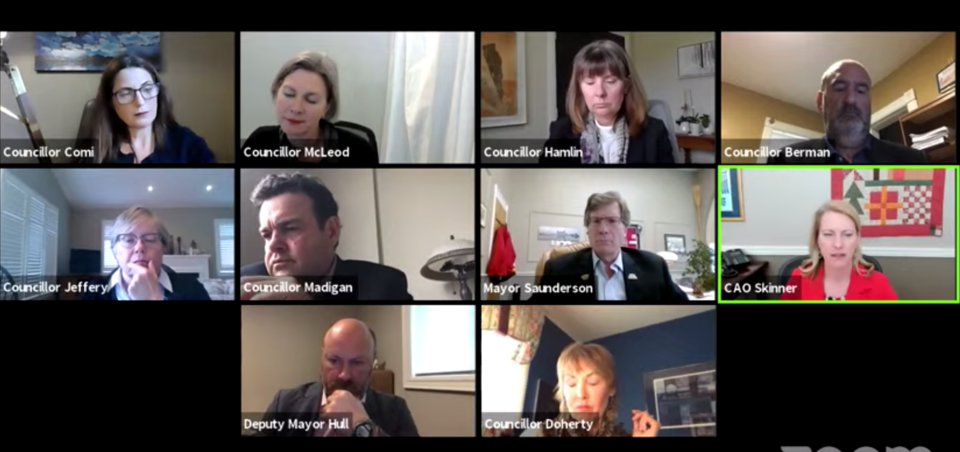Collingwood’s most senior staffer told council more could have been done to prevent the water capacity issue that has led the town to stop issuing building permits for new homes as of April 26, 2021.
“Staff take accountability that these challenges could and should have come forward to council earlier,” said Collingwood CAO Sonya Skinner.
However, she said the temporary moratorium was the only “viable” option in 2021.
Signs showing up as far back as 2016 indicated Collingwood’s water treatment plant would not be able to handle a flood of development. That was the first year demand reached 80 per cent of the plant’s capacity, triggering a process to plan for an expansion.
But some industrial, large-volume water users left town, creating a dip in usage, reported Skinner.
Then an error in the chlorine dosing formula was discovered in 2018, and corrected with assistance from the province. The adjustment reduced the amount of water the plant could produce in the winter.
In 2019, organizational changes in the town’s planning department led staff to flag weaknesses in the town’s framework for allocating water capacity for new developments in Collingwood.
That year also brought the Collingwood Judicial Inquiry, followed by a global pandemic.
By 2020, the town finished its water and wastewater servicing plan, which told the town how much water it would need.
During this time, development applications poured in and town staff flagged water capacity as a more urgent issue.
In January 2021, Skinner called a multi-department emergency meeting on the water capacity issue with legal counsel present.
In March, she brought the issue to council.
On April 26, council voted to temporarily stop issuing building permits for new developments with an interim control bylaw that could be in place from several months to two years.
“Hindsight is 20/20,” said Skinner during council’s strategic initiatives committee meeting on May 3. “Having not been distracted by many things that have happened in the last year or two and, potentially, the state of the departments when current management took over … we would potentially have treated things much differently.”
Skinner maintains the moratorium on building permits is still a reasonable approach. While the interim control bylaw is in place, the town will not issue building permits for new builds, with exceptions for renovations or expansions where the use will stay the same.
Developers who obtained building permits prior to April 26 can still build. Developers in early stages of their applications can continue up to the building permit stage.
“I don’t think council had other viable options to act right now, and it had to act last week in the interest of all the taxpayers,” said Skinner.
She explored for other options, like conserving water more to allow more users on the system, or a holding provision allowing developers to get all the approvals with a hold on construction.
“I could not show a viable path with risks that were judged acceptable to our existing users and our town obligations,” said Skinner.
The town has completed an environmental assessment and is working on plans to expand the 23-year-old water treatment plant located at Sunset Point. The expansion is supposed to be complete by the end of 2025. But the current capacity will only last about two years without the moratorium in place, according to Skinner.
“It is a blunt instrument,” said Skinner referring back to comments made by developers urging council not to enact a moratorium. “But it does apply to everyone at exactly the same time and provides us with what we need just today to move forward … It was important to pause everything and take a look at this.”
Skinner stressed that staff are moving forward everyday on this “high priority” file, with meetings scheduled with the development community and local engineers who have reached out to help find solutions.
Staff and a consultant will be working on an update to town planning policies to improve the framework used by the town to allocate water and wastewater services for new development.
The town is also speaking with The Blue Mountains and New Tecumseth, both of which receive drinking water from Collingwood, to see if Collingwood can take back any capacity.
Skinner promised updates for council at every opportunity.
Councillor Mariane McLeod also introduced a motion requiring the interim control bylaw and town water capacity situation become a standing item on every council agenda until the matter is resolved. Council will vote on McLeod’s motion at a later date.
